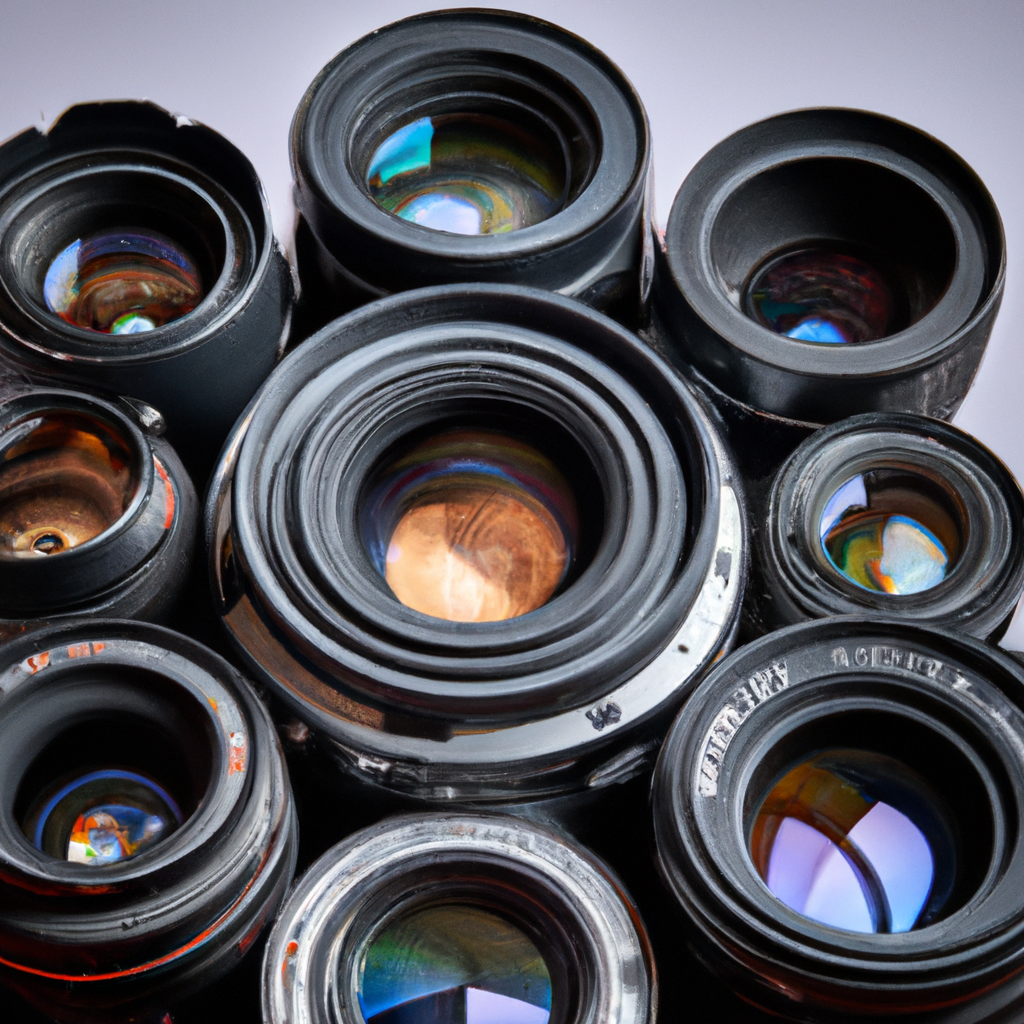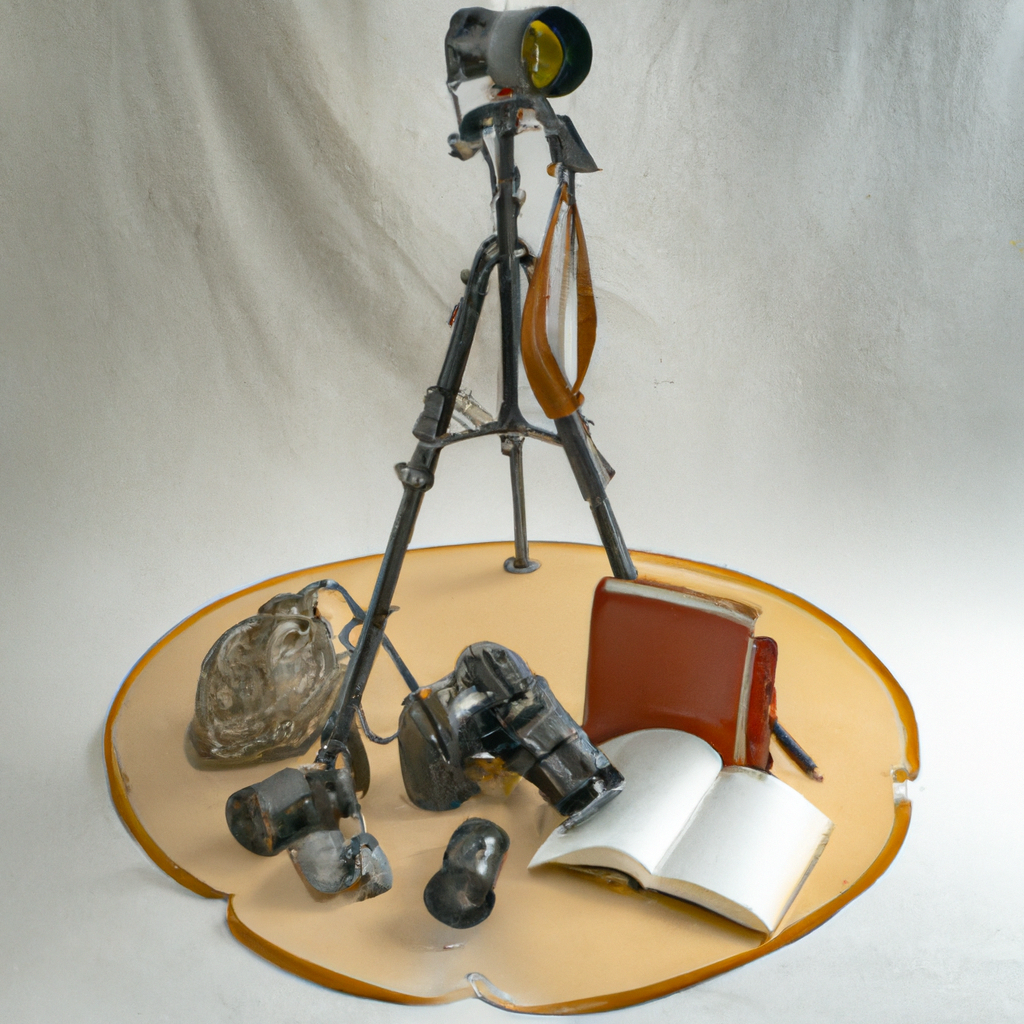Top 10 Gift Ideas for Photographers: Camera Lenses Edition

Understanding Camera Lenses: A Comprehensive Guide
When it comes to photography, one of the most important aspects to consider is the lens you are using. Different types of camera lenses have different capabilities and are better suited for different scenarios. In this article, we will take a detailed look at the different types of camera lenses available and their uses.
Standard Lenses
Standard lenses, also known as normal lenses, have a focal length of around 50mm. They are the most versatile type of lens and are great for general photography, including portraits, landscapes, and everyday shots. Because of their ability to replicate what the human eye sees, standard lenses are often considered the default lens for a camera.

Telephoto Lenses
Telephoto lenses have a longer focal length than standard lenses, typically in the range of 70-300mm. These lenses are great for capturing distant subjects, such as wildlife or athletes on a field. Telephoto lenses can also be used for portraits, but they have a more compressed perspective, which can make subjects appear closer together.

Wide-Angle Lenses
Wide-angle lenses have a shorter focal length than standard lenses, typically in the range of 10-35mm. As the name suggests, these lenses have a wider field of view and are great for capturing landscapes, architecture, and group shots. They can also be used to create interesting perspective effects, such as making a subject appear larger than they are in reality.

Zoom Lenses
Zoom lenses have a variable focal length, meaning they can be adjusted to be a wide-angle or telephoto lens. These lenses are great for versatility and are often used by travel photographers and event photographers. However, it's important to note that zoom lenses often have a slower aperture, which can make them less suitable for low-light photography.

Macro Lenses
Macro lenses are specifically designed for close-up photography and have a high magnification ratio. These lenses are great for capturing small subjects, such as flowers, insects, and other small details. They can also be used for product photography and other types of close-up shots.

Fisheye Lenses
Fisheye lenses have a unique ultra-wide angle of view, typically around 180 degrees. These lenses are great for capturing dramatic and unique perspectives, and are often used in landscape and architectural photography, as well as in action sports photography.

Mirror Lenses
Mirror lenses, also known as reflex lenses, use a mirror to reflect light and achieve a shorter focal length. These lenses are compact and lightweight, making them great for travel photography. However, they can have a slower aperture and can be less sharp than other types of lenses.

There are many types of camera lenses available, each with their own unique capabilities and uses. By understanding the differences between these lenses, photographers can make informed decisions and choose the best lens for the job. Whether you're a professional photographer or a hobbyist, having a good understanding of camera lenses will help you take your photography to the next level.
Choosing the Right Lens for Your Needs
When it comes to choosing the right lens for your needs, there are a few key factors to consider. The first is the focal length, which determines the field of view and perspective of the lens. If you're looking to capture distant subjects, a telephoto lens would be the best choice. If you're looking to capture wide landscapes or group shots, a wide-angle lens would be a better option.
Another important factor to consider is aperture. Aperture is the size of the lens opening that allows light to pass through, and is measured in f-stops. A lower f-stop number means a wider aperture, which allows more light in and can be useful for low-light photography. However, it's important to note that lenses with a wide aperture can be more expensive.
Finally, consider the type of photography you'll be doing. If you're a landscape photographer, a wide-angle lens would be a great choice. If you're a portrait photographer, a telephoto lens would be a better option. And if you're a travel photographer, a zoom lens would be the most versatile choice.
Investing in Quality Lenses
When it comes to photography, investing in quality lenses is just as important as investing in a good camera. Not only will high-quality lenses produce sharper and more detailed images, but they will also last longer and be more durable.
When shopping for lenses, it's important to consider the brand and reputation of the manufacturer. Some of the most reputable lens manufacturers include Canon, Nikon, Sony, and Fujifilm. It's also important to consider the warranty and customer service that comes with the lens.
Understanding the different types of camera lenses and their uses is essential for any photographer. By considering factors such as focal length, aperture, and the type of photography you'll be doing, you can make an informed decision and choose the best lens for your needs. And by investing in high-quality lenses, you'll be able to capture stunning and detailed images that will last a lifetime.
 Gifts for Photographers: The Ultimate Guide
Gifts for Photographers: The Ultimate Guide